The Malta College of Arts, Science and Technology (MCAST) held its annual Graduation Mass at St John’s Co-Cathedral in Valletta on 13 November, celebrating the success of more than 2,826 new graduates across its six Institutes and the Gozo Campus.
The Mass was attended by the MCAST President of the Board of Governors, Mr Horace Laudi, the MCAST Principal and CEO, Mr Stephen Vella, Deputy Principals, the Registrar, Directors and staff. The celebration was led by His Excellency Archbishop Charles Jude Scicluna and the MCAST Chaplain Fr Aurelio Mulè Stagno and Fr Sandro Camilleri.

This yearly event highlights not only the academic success of MCAST students, but also the College’s ongoing commitment to preparing learners for the wider personal and professional challenges that lie ahead. Graduates from the Institute of Applied Sciences, Institute for the Creative Arts, Institute of Business Management and Commerce, Institute of Community Services, Institute of Engineering and Transport, and the Institute of Information and Communication Technology, were all represented at the ceremony.
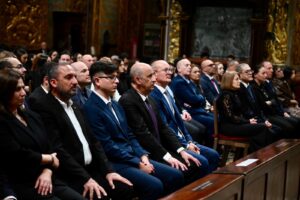
In his homily, Archbishop Scicluna congratulated graduates for their dedication and resilience. He encouraged students to be determined in their urge to seek improvement, “In all that you do and all that you experience, in the way you love each other, you cherish and care for one another, honour your responsibilities, and remind yourselves through your words and actions: I must leave the world better than I found it.” The Archbishop also advised students to reflect on how much time they spend on their phones or in front of screens instead of being truly present with the people they love. He reminded them that personal connection is as essential as food and water, because without it our spirit withers. He encouraged them to embrace modern technology and human progress, but without losing what makes us genuinely human.
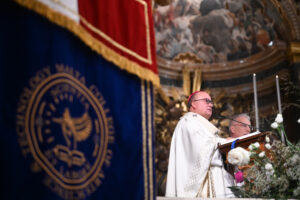
The President and the Principal presented a cyanotype artwork created by third-year MCAST Photography students from the Institute for the Creative Arts. Cyanotype, an early photographic process invented in 1842, uses iron salts and sunlight to produce distinctive blue prints. The students chose 19th-century liturgical vestments as their subject, including a rare mitre belonging to Bishop Annetto Casolani, linking the artwork to the same era in which the technique was created.
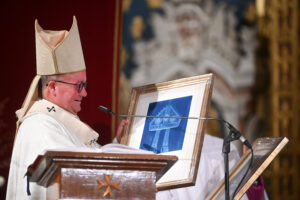
MCAST will continue the celebrations with a series of graduation ceremonies for students who have completed programmes from MQF Level 1 to MQF Level 7. These ceremonies will take place between 19 November and 5 December at the Main Hall at the Paola Campus.
This year, 565 students will graduate at Master and Bachelor level, while 1,895 students have successfully completed Diplomas at MQF Levels 3, 4, and 5, reflecting the diverse and growing community of learners across all MCAST Institutes.
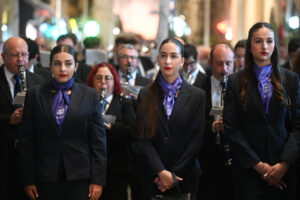

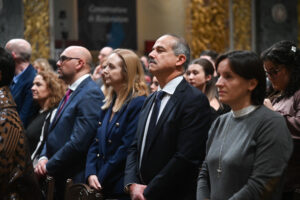

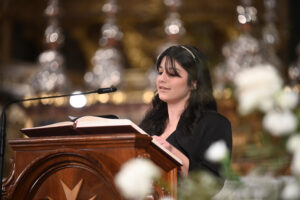
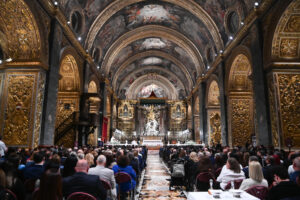


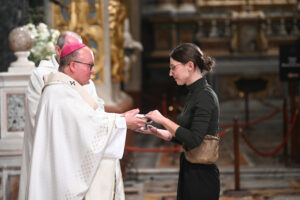
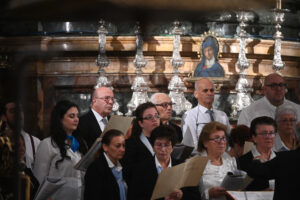
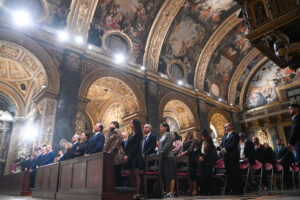











 MCAST Main Campus
MCAST Main Campus  +356 2398 7100
+356 2398 7100
 information@mcast.edu.mt
information@mcast.edu.mt